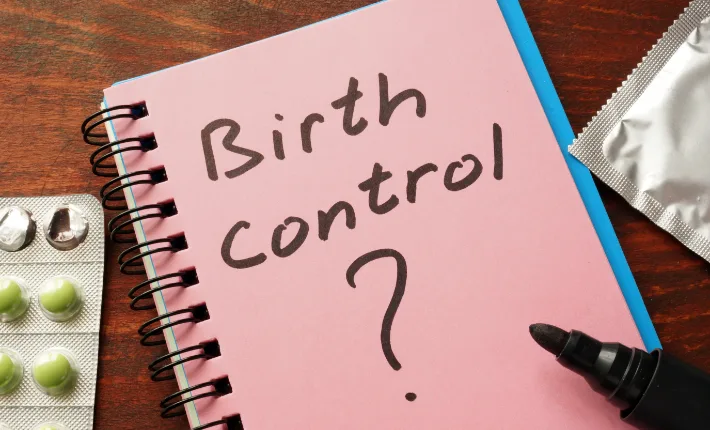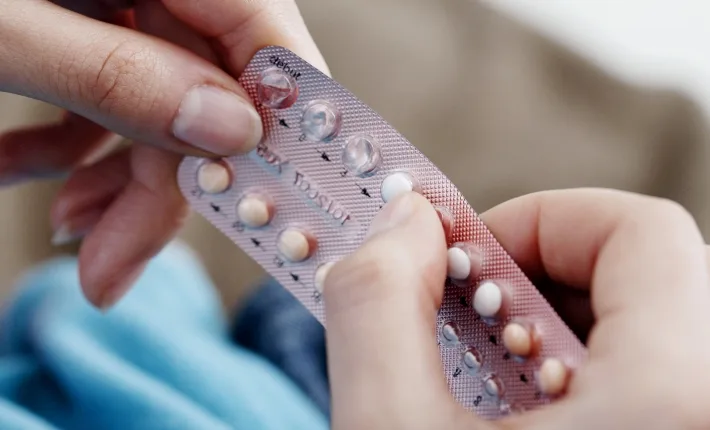Do you ovulate while you're on birth control pills?

One common query among most is women: Do you ovulate while you're on birth control pills? Understanding how birth control works and its effects on ovulation is crucial for informed decision-making regarding reproductive health. Let us try to understand the mechanisms of birth control pills, whether ovulation occurs while on them, types of birth control pills, and what happens after stopping them.
How do birth control pills work?
Birth control pills, commonly known as oral contraceptives, function through a combination of hormones, typically oestrogen and progestin, or progestin alone. These hormones work together to prevent pregnancy by primarily inhibiting ovulation.
Birth control pills suppress the release of an egg from the ovary, thereby eliminating the possibility of fertilisation. By maintaining consistent hormone levels, the pills signal to the body that ovulation has already occurred, preventing the release of additional eggs. Additionally, birth control pills thicken cervical mucus, making it difficult for sperm to penetrate and reach an egg if ovulation were to occur. It also thins the uterine lining, reducing the likelihood of implantation if fertilisation does occur.

Do you ovulate on birth control?
One of the primary mechanisms of action for birth control pills is the suppression of ovulation. Ovulation is the process by which a mature egg is released from the ovary, making it available for fertilisation by sperm. However, when women are on birth control medication, the hormonal composition of these pills effectively interrupts this natural process.
The hormonal components of birth control pills, typically estrogen and progestin or progestin alone, work in tandem to maintain a consistent hormonal environment within the body. This consistent hormone level tricks the body into believing that ovulation has already occurred. As a result, the pituitary gland in the brain doesn't release follicle-stimulating hormone (FSH) and luteinising hormone (LH) in the same way it does during a natural menstrual cycle. Without the surge of LH, the ovary does not release an egg.
Signs of ovulation while on birth control
While birth control pills are highly effective in preventing ovulation, some women may experience minor fluctuations in their menstrual cycle or notice changes in their body that mimic signs of ovulation. These changes can include:
- Mid-cycle spotting: Some women may experience light spotting or bleeding during the middle of their cycle, which could be mistaken for ovulation bleeding. However, this is typically due to hormonal fluctuations and is not a sign of ovulation.
Be prepared for any sign of spotting or bleeding with superior quality pads from Always. Try their Ultra Thin Pads which are armed with flexible wings, so it stays in place no matter where you are and what you do. You could also use Always’ panty liners if you experience mild spotting. Try the Comfort Protect panty liners which have an innovatively discreet design which is flexible and reliable so you can go about your activities freely. These are super comfortable for all day usage, and the unique odour-neutralising technology keeps you confident and secure all day.

Breast tenderness: Hormonal changes from birth control pills can sometimes cause breast tenderness, similar to what some women experience during ovulation or before menstruation. However, this symptom alone is not indicative of ovulation.
Changes in cervical mucus: While birth control pills thicken cervical mucus to impede sperm movement, some women may notice variations in their cervical mucus consistency. However, these changes are more likely related to hormonal fluctuations from the pill rather than ovulation.
All these changes may make one wonder ‘Do you ovulate on birth control?’ or ‘when do you ovulate on the pill?’ It's important to remember that while these changes or signs of ovulation may occur while on birth control pills, they do not necessarily indicate ovulation. The consistent hormonal regulation provided by birth control pills ensures that ovulation is suppressed, providing reliable contraception for women.
Types of Birth control Pills
There are two main types of birth control pills: combination pills and progestin-only pills.
Combination Pills: These contain both oestrogen and progestin hormones. They are further classified into monophasic, biphasic, and triphasic pills based on the hormone levels throughout the menstrual cycle.
Progestin-Only Pills (Mini Pills): As the name suggests, these pills only contain progestin. They are suitable for women who may be averse to oestrogen or experience side effects from it.

Will I ovulate after stopping the pill?
After stopping birth control pills, ovulation typically resumes within a few weeks to months. However, the exact timing can vary from woman to woman. It's essential to use alternative methods of contraception if pregnancy is not desired immediately after discontinuing the pill.
Is it true that you're more fertile after stopping birth control?
There's a common misconception that you are more fertile after stopping birth control. While it's true that fertility returns once ovulation resumes, there's no evidence to suggest that fertility increases beyond baseline levels. It's important to understand that fertility is a complex interplay of various factors and may vary from person to person.
In conclusion, the question "Do you ovulate while on birth control pills?" can be confidently answered with a resounding no. Birth control pills effectively prevent ovulation, providing reliable contraception for women. Understanding the different types of birth control pills and their mechanisms empowers women to make informed choices about their reproductive health.
Remember, if you have concerns about birth control or ovulation, consult with a healthcare provider for personalised guidance.
Disclaimer:
Please note the date of the last review or update on all articles. No content on this site, regardless of date, should ever be used as a substitute for direct medical advice, diagnosis or treatment from your doctor or other qualified clinician. Always is committed to ensuring that all of our products meet rigorous safety standards; Always pads prioritize safety, protection and comfort of its consumers.




